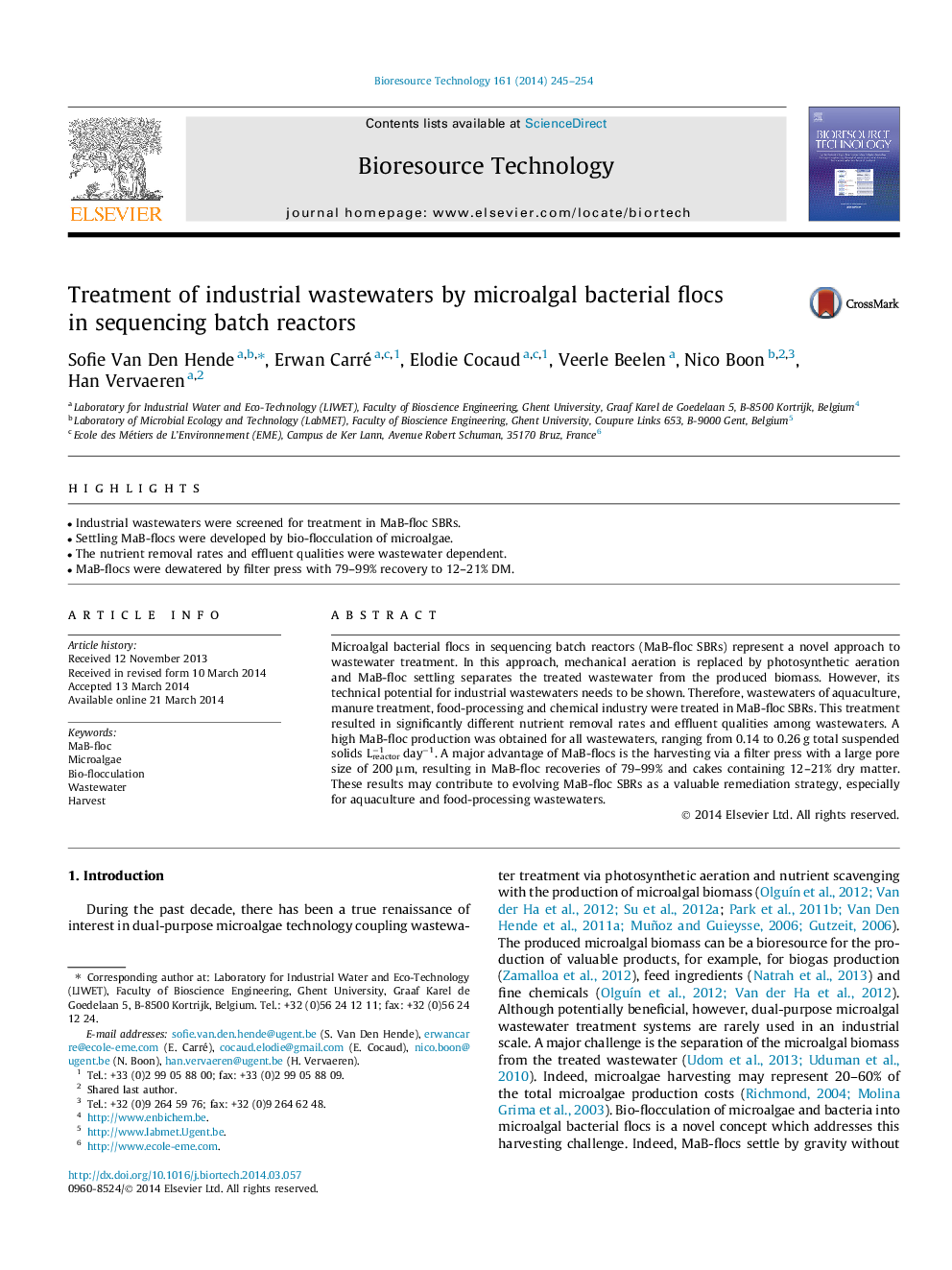| Article ID | Journal | Published Year | Pages | File Type |
|---|---|---|---|---|
| 7078389 | Bioresource Technology | 2014 | 10 Pages |
Abstract
Microalgal bacterial flocs in sequencing batch reactors (MaB-floc SBRs) represent a novel approach to wastewater treatment. In this approach, mechanical aeration is replaced by photosynthetic aeration and MaB-floc settling separates the treated wastewater from the produced biomass. However, its technical potential for industrial wastewaters needs to be shown. Therefore, wastewaters of aquaculture, manure treatment, food-processing and chemical industry were treated in MaB-floc SBRs. This treatment resulted in significantly different nutrient removal rates and effluent qualities among wastewaters. A high MaB-floc production was obtained for all wastewaters, ranging from 0.14 to 0.26 g total suspended solids Lreactorâ1 dayâ1. A major advantage of MaB-flocs is the harvesting via a filter press with a large pore size of 200 μm, resulting in MaB-floc recoveries of 79-99% and cakes containing 12-21% dry matter. These results may contribute to evolving MaB-floc SBRs as a valuable remediation strategy, especially for aquaculture and food-processing wastewaters.
Related Topics
Physical Sciences and Engineering
Chemical Engineering
Process Chemistry and Technology
Authors
Sofie Van Den Hende, Erwan Carré, Elodie Cocaud, Veerle Beelen, Nico Boon, Han Vervaeren,
